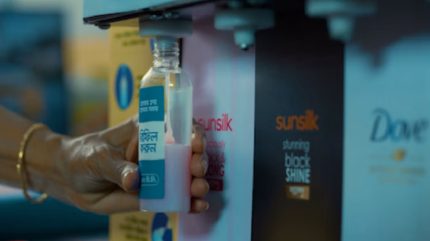
Unilever has announced its commitment to ensure all its plastic packaging becomes reusable, recyclable, or compostable by 2030 for rigid plastic and by 2035 for flexible plastic.
As part of this initiative, the company has been testing refill pilot projects around the world, aiming to reduce the use of virgin plastic and address the issue of plastic sachet waste.
Since 2018, the company has initiated more than 50 refill and reuse pilot projects.
The business stated that the knowledge gained from these initiatives is shaping its strategies to cut down on single-use plastic packaging.
In Bangladesh, Indonesia, and Sri Lanka, Unilever’s teams have adapted refill solutions to suit local market conditions.
In Indonesia, a refill model was tested, with motorcycle drivers selling products door-to-door from large jerry cans. Although the high operational costs made scaling this model ‘challenging’, the simple pouring system proved effective.
In Bangladesh, self-service refill machines were trialled in 2021. However, maintenance of these machines proved difficult.
Working with Bopinc, a TRANSFORM-funded organisation, a more scalable, user-friendly, cost-effective machine was developed for Bangladesh that fitted on store counters.
According to Unilever, scaling reusable packaging models requires a collaborative effort across the supply chain, including manufacturers, retailers, waste management bodies, and governments.
Unilever said that it is advocating for supportive regulations and working with entities such as the Business Coalition for a Global Plastics Treaty, the World Economic Forum, and the Ellen MacArthur Foundation to establish common reuse definitions and metrics.
Last month, Unilever Bangladesh advanced sustainability in the country with the URefill initiative, incorporating a machine that reduces plastic waste.







